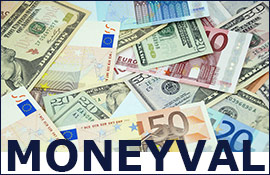Corruption
Corruption has a significant impact on the functioning of the whole system of a country, as it hinders economic development, impedes the rule of law, effective governance and access to justice and public institutions. Given the significance of its effects, the fight against corruption has been a key issue in the initiatives in international fora for a long time. A number of international conventions have been concluded which provide for the undertaking of common efforts of countries and the harmonisation of regulation at national levels. Following the setting of standards, international stakeholders developed a number of best practices papers and guidelines to assist countries in implementing additional measures to enhance the effectiveness of the national frameworks.
The international AML/CFT network also attaches a great importance to the fight against corruption. Corruption is firstly one of the designated predicate offences in the FATF Standards, being one of the most recurrent ones. In addition, the occurrence of corruption is often the cause which hinders the overall effectiveness of the fight against criminality in countries, in particular with regard to organised crime. Given that financial profit is the main reason for corruption to expand a successful fight against money laundering of the proceeds of corruption, in particular recovery of the involved assets, is a key aspect to rendering corruption less profitable and attractive for criminals. It is therefore important to coordinate the initiatives within international fora with regard to the fight against both money laundering and corruption. The FATF Recommendations regulate a number of issues related to the fight against corruption, such as transparency of legal persons, beneficial ownership, as well as enhanced preventive measures against politically exposed persons. In addition, the FATF issued a number of papers covering a range of aspects of the interconnection between corruption and money laundering, while particularly focusing on laundering proceeds of corruption offences.
The Council of Europe member states adopted the Criminal and Civil Law Conventions on Corruption in 1999, which were ratified by the majority of Member States of the Council of Europe, as well as Belarus. The Council of Europe’s Group of States against Corruption (GRECO) undertakes periodic assessments of the implementation of anti-corruption measures in its member jurisdictions. The assessments of GRECO are undertaken in evaluation rounds, with each of the round focusing on a specific corruption-related topic. GRECO is currently undertaking its fourth round of assessments, the current theme being the prevention of corruption in respect of members of parliament, judges and prosecutors. The Economic Crime and Cooperation Unit of the Council of Europe manages projects of technical assistance. A number of the projects aim at enforcing the framework against corruption in the respective jurisdictions. For further information, please refer to the section Technical assistance.
Reference documents
International conventions
- United Nations Convention against Corruption (Merida Convention, 2003)
- Criminal Law Convention on Corruption (Council of Europe, 1999)
- Civil Law Convention on Corruption (Council of Europe, 1999)
Other documents
- FATF Guidance 2014 - FATF Guidance: Transparency and Beneficial Ownership
- FATF Best Practices 2013 - Best Practices Paper: The Use of the FATF Recommendations to Combat Corruption
- UNCAC Guidance 2013 - UNCAC: A Strategy for Safeguarding against Corruption in Major Public Events
- FATF Guidance 2013 - FATF Guidance: Politically Exposed Persons (Recommendations 12 and 22)
- FATF Guidance 2012 - Specific Risk Factors in Laundering the Proceeds of Corruption: Assistance to Reporting Institutions
- FATF Guidance 2012 - Corruption: A Reference Guide and Information Note on the Use of the FATF Recommendations to Support the Fight against Corruption
- Egmont Group Other report 2012 – The Role of FIUs in Fighting Corruption and Recovering Stolen Assets
- World Bank Best Practices 2012 - Using Asset Disclosure for Identifying Politically Exposed Persons
- FATF Typologies 2011 - Laundering the Proceeds of Corruption
- StAR Guidance 2012 - On the Take: Criminalising Illicit Enrichment to Fight Corruption
- StAR Typologies 2011 - The Puppet Masters: How the Corrupt Use Legal Structures to Hide Stolen Assets and What to Do About It
- StAR Guidance 2010 - Politically Exposed Persons: Preventive Measures for the Banking Sector
Relevant Council of Europe websites
Conference of the Parties (COP) to the CETS 198



